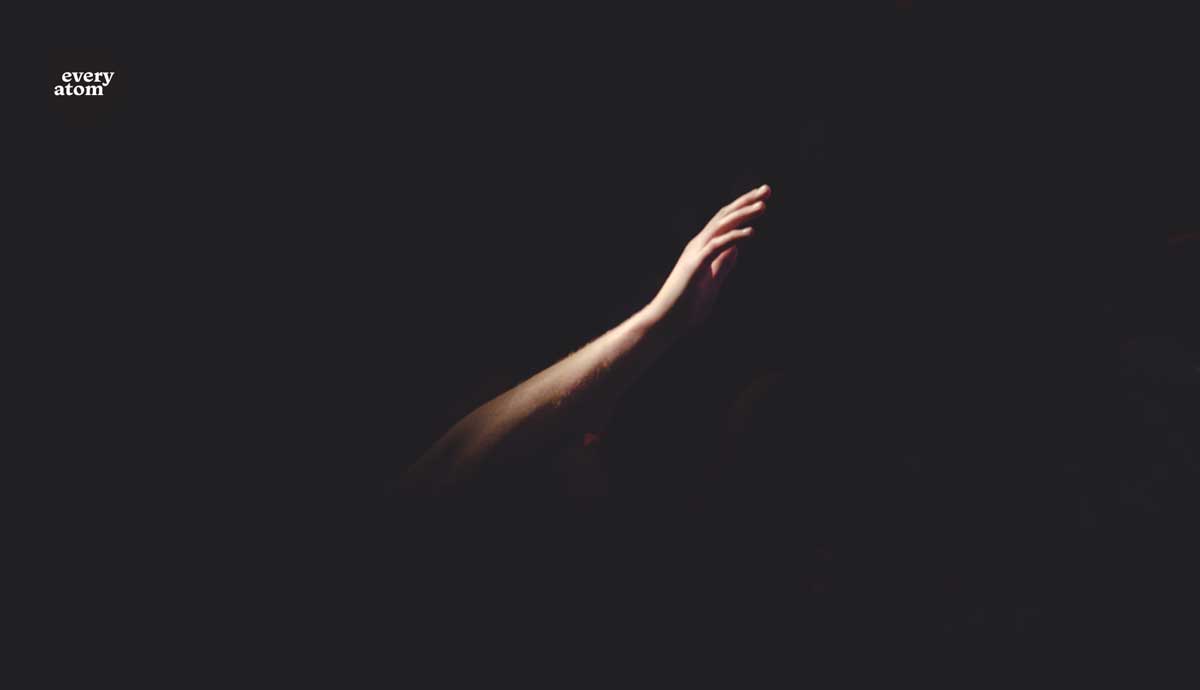Every Atom | No. 95
Introduction to Every Atom by project curator Brian Clements
Whitman referred to the third edition of Leaves of Grass as “the New Bible,” and so he was clearly thinking of the book and this poem as standing in contrast to traditional notions of the religious. What is so shocking about the opening lines of this passage is their sheer sacrilege—their total, unabashed reversal of conventional pieties. Here he replaces the devotional practice of prayer with the seemingly impious rancor of arm-pits, insisting thereby on the divinity of the body and the equal standing of the body and the soul.
Keeping at arms-length “churches,” “bibles,” and “creeds,” he rejects in the strongest possible terms any institutionalization or encrustation of “religion” and the spiritual impulse. Refusing to bow down to priests, he prophesies in the preface to the 1855 Leaves of Grass a “new order” where every person “shall be his own priest.” Whitman believes that all of creation is divine and that each person has access to divinity through his or her individual body. There is nothing debased about the body; rather, it is a sacred “mould,” all of whose functions are holy.
By so insistently worshipping his own “masculine coulter”—a coulter is a vertical cutting blade fixed in front of a plowshare, or the part of a seed drill that makes the furrow for the seed—he goes beyond the arm-pit, alluding to his sexual organ—his procreative drive—doubling down on his blasphemy as he refuses to believe that sex is in any way shameful or sinful.
The solipsism here is startling, culminating in the statement “I dote on myself. . . . there is that lot of me, and all so luscious.” Whitman’s sense of his own carnal “luscious”ness extends from his arm-pits and ankle to his inner workings—his mental and emotional projections and receptions. He is purely and perfectly alive in the moment, “thrill”ed by all the inexplicable mundane things of the world.
The human body is but one miracle of nature. Toward the end of the passage, as he wonders at the marvel of our footstep—the hinge of our ankle and the exquisiteness of that design—and the digestive system, he shifts to those things outside the body—what “I … am touched from”—here a single flower that blows away the countless theories and philosophies of humankind in its glory.
Whitman challenges us to do as he does: to live in the moment and stand in awe of creation, including our bodies, and refuses distinctions between the “lovely” and “unlovely,” the “sacred” and “profane,” the “lofty” and “low.” If it is in nature, it is of God and therefore is sacrosanct. He urges us by example to know and appreciate ourselves in the world, in unmediated relationship with it.
Recommended
Nor’easter
Post-Op Appointment With My Father
Cedar Valley Youth Poet Laureate | Fall 2024 Workshop







